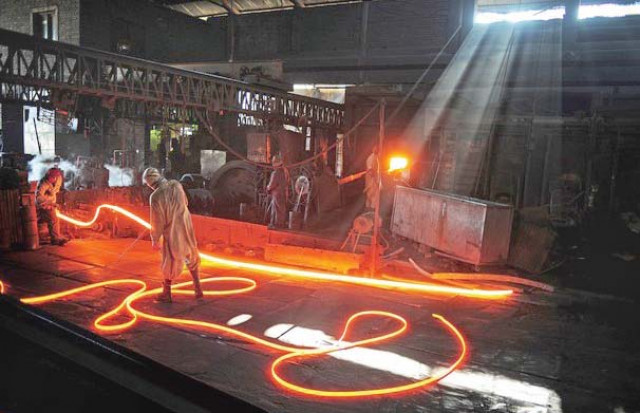Privatisation cometh
If the privatization is carried out with transparency, it might be the solution to Pakistan's financial problems.

The nightmare of the attempted privatisation of Pakistan Steel Mills in 2006 is something that most investors have not forgotten. PHOTO: FILE

We welcome this decision as we believe that the economy works best when running businesses is left to the private sector and the public sector remains focused on providing an infrastructure, and a healthy and educated workforce, while also acting as a firm regulator to ensure a level playing field. The government’s ownership of large segments of the energy chain has now become a massive inefficiency that is dragging the economy down.
But while the decision to privatise is a good one, this process needs to be managed carefully. Public perception matters tremendously, particularly where public money is concerned. The government needs to ensure that each company that is privatised goes through a completely transparent process, so that it does not get bogged down in the court system and investors feel secure knowing that when they try to buy an asset in Pakistan, they can be assured that the transaction will be completed.
The nightmare of the attempted privatisation of Pakistan Steel Mills in 2006 is something that most investors have not yet forgotten. That case, challenged by the Supreme Court itself, did not find any fraud on the part of either the government or the buyers, but did suggest that in their undue haste to privatise the company, the government forgot to go through all of the legally required procedures. Just the perception of fraud was enough to derail that transaction. It will be this administration’s task to prove that it can follow appropriately transparent procedures to ensure that even the perception of impropriety does not arise.
It is a high bar to meet, but one that we hope this administration will meet. If it is done right, this process could be the solution to the country’s financial problems. State-owned enterprises cost close to Rs500 billion in losses per year, or about a third of the country’s fiscal deficit. Another one-third is caused by the energy subsidies that are made necessary by the inefficiency of state-owned power companies. In short, the deficit would be reduced to just one third of its current levels — a much more manageable number — simply through this privatisation process.
And this does not include the fact that the government will likely get billions of dollars for the companies it sells off. If used wisely, that money can substantially reduce the national debt, or finance major infrastructure projects.
To those who say that the private sector’s concern for profit would drive them to offer bad services for high prices, we would only like to point to the example of Karachi, the only city in the country where there have been areas that have seen almost no loadshedding for the last three years, all because the city’s privately-owned utility has the incentive to provide uninterrupted electricity to people who pay their bills on time. The city is better off with a better power supply and more industrial activity because more factories can afford to stay open, unlike in other parts of the country.
It would be naïve to say that the process does not have drawbacks. Yes, thousands of people will lose their jobs. But those thousands of people are what cause those companies to run inefficiently in the first place. And, more importantly, they are not just going to be thrown out onto the streets. Each of them will be given generous severance packages, which will allow them to live comfortably while they look for alternative work. Privatisation may be a process driven by the numbers, but it is not heartless. And it is something we have tried before. It works. There is no reason to fear it.
Published in The Express Tribune, July 19th, 2013.
Like Opinion & Editorial on Facebook, follow @ETOpEd on Twitter to receive all updates on all our daily pieces.















COMMENTS
Comments are moderated and generally will be posted if they are on-topic and not abusive.
For more information, please see our Comments FAQ